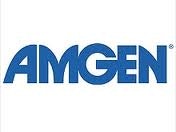For the last several years, Merck & Co., Inc. (NYSE:MRK) has been able to ride the success of its leading type 2 diabetes franchise Januvia/Janumet, which generated $5.75 billion in sales last year and represented more than 14% of total pharmaceutical revenue. The successful franchise has taken the top spot from Singulair in the titan’s product lineup and will continue to anchor the company for the foreseeable future. In fact, after Januvia and Janumet, only three products have shots at eclipsing $2 billion in sales in 2013.

This will be a tough year for Merck & Co., Inc. (NYSE:MRK) as Singulair experiences its first full year of generic competition in the United States and loses exclusivity in major European markets. The company is relying heavily on its type 2 diabetes drug franchise to offset as much stagnation as possible. While growth is expected, there is a wave of next generation competition that is about to hit the diabetes market. Couple that with new safety concerns for patients taking DPP-4 inhibitors and GLP-1 agonists and things could get messy. Are Merck & Co., Inc. (NYSE:MRK) and Januvia in trouble?
A big-picture view
Understanding the big picture is important to understanding how Januvia’s vulnerability affects Merck. The company has taken a lot of heat in recent years for its expensive R&D program, which has swallowed almost $28 billion total and represents 19.6% of total revenue over the last three years alone. That means little without comparing it to competitors’ ratios, but investors and analysts can agree that returns have been lacking for such a massive budget.
Merck & Co., Inc. (NYSE:MRK) does have bright spots in its product lineup such as Januvia, Gardasil, Zetia, and Isentress. Unfortunately, it also has a series of delays and gaffes in its pipeline. The company had a Food and Drug Administration, or FDA, decision on its next generation anesthesia reversal agent Suggamadex delayed until the second half of 2013. Some analysts expect an eventual U.S. launch to double annual sales to $575 million by 2016, but with several regulatory delays since 2008 some question if it will ever get the nod.
Internal delays have also hit osteoporosis drug odanacatib, which analysts penciled in for $2 billion in peak annual sales. The series of hiccups forced Merck & Co., Inc. (NYSE:MRK) to can R&D chief Peter Kim for former Amgen, Inc. (NASDAQ:AMGN) chief Roger Perlmutter. It will take time to cut the fat off the company’s R&D program, but hopefully Perlmutter can revitalize and refocus the pipeline.
Hearing footsteps
As you can see, Merck has a lot riding on Januvia’s continued success. The drug has yet to falter in any major way and is generally accepted as one of the safest therapies for patients with type 2 diabetes. That could change with a recently concluded study — the first of its kind — linking the drug and Bristol Myers Squibb Co. (NYSE:BMY)‘s Byetta to a doubling in pancreatitis cases. The FDA has had past concerns with the two drugs, which increase levels of the hormone (GLP-1) responsible for insulin production.
